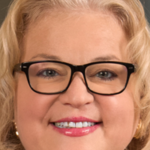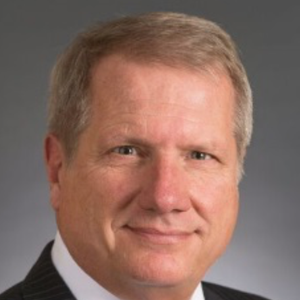

A common refrain is that the United States remains at a strategic disadvantage because DoD procurement practices are complex, siloed, and opaque to the private sector. Although space has yet to be explicitly declared a critical infrastructure, US space companies face complex legal and regulatory requirements which leads to space systems characterized by high costs, long program schedules, and frequent delays. Risk aversion, funding gaps and limiting supplier access to technologies or adherence to government-centric technology requirements limits cost reduction and speedy development. Can this all be change by the acknowledgment that space is a critical infrastructure sector and needs a new set of rules and regulations?
 Randy Segal
Randy Segal
With 20 years of in-house general counsel experience, Randy Segal brings an individual perspective to every matter she handles, both as your outside counsel and as someone who has walked in your shoes. With a focus on satellite, wireless, drone, and technology transactions, Randy provides commercially practical solutions in industries where technological change is ever-present. Randy’s practice often involves multi-level chess games, where every move needs to be considered from a multitude of angles to be successful.
As a result, Randy’s practice is reflected in three segments. First, as co-leader of the Space and Satellite practice, Randy has handled many types of transactions, from day-to-day matters to the most complex international transactions for industry operators, investors, and technology providers. She has been involved in taking companies public, advising on acquisitions, divestitures, and complex cross-border joint ventures, as well as large satellite system development, deployments and funding.
Second, as an advisor to technology investors and their portfolio companies, Randy has advised on transactions focused on big data analytics, IT, wireless systems, spectrum licenses, environmental analytics, wireless proximity analysis, drone technology, terrestrial positioning, and other innovative technologies.
Third, Randy provides “strand of pearls” advice to global clients, working seamlessly with our international offices to develop familiar, comfortable and “right-sized” solutions. Randy’s extensive cross-border experience has resulted in an extensive tool-kit of resolutions for the most complex of legal regimes. Randy’s transactional and advisory experience is both deep and broad, working throughout North and South America, Europe, Asia and the Middle East and on the most complex of international programs and legal issues.
 Brigadier General Steve Butow
Brigadier General Steve Butow
Steve “Bucky” Butow is the Director of the Space Portfolio at the Defense Innovation Unit (DIU). He joined the team in 2015 as an early plank owner when DIU was known as the Defense Innovation Unit Experimental (DIUx) and helped establish the organization’s operating locations in Silicon Valley; Boston, Massachusetts; and Austin, Texas.
Prior to joining DIU, Butow was the Vice Chief of the Joint Staff, California Military Department with responsibilities including cybersecurity, incident awareness and innovation. He is a former Commander of the 129th Rescue Wing at Moffett Federal Airfield, CA, where his responsibilities included organizing, training, equipping, and maintaining 970 combat-ready forces and $1 Billion dollars of MC-130P aircraft, HH-60G
helicopters and special mission equipment supporting the U.S. Air Force’s combat rescue and personnel recovery missions. He has additionally served as the Deputy Director of the Joint Search and Rescue Center for U.S. Central Command in 2005, and as Chief of Personnel Recovery for U.S. Air Forces Central in 2007 supporting Operations IRAQI and ENDURING FREEDOM. He has more than 3,500 flying hours in T-37, T-38, C-130, HC-130 and MC-130P aircraft. In his reserve capacity, Butow is a Brigadier General serving part time as a Special Assistant to the Director, Air National Guard in a federal status.
As a researcher with the Search for Extraterrestrial Intelligence (SETI) Institute, Butow worked on instrument concepts for Mars surface soil analysis at NASA Ames Research Center in Mountain View, CA. He later served as co-principal investigator for a series of airborne science missions for which he was recognized for outstanding achievement and contributions to the Space Science Division in 1999 and received an Ames Honor Award as a member of an Astrobiology Mission Project Team in 2000.
Butow graduated from San Jose State University with a B.A. in Physics & Astronomy and earned a M.S. in Management with specialization in Air and Space Strategic Studies from the University of Maryland. He has also completed executive courses at Harvard’s John F. Kennedy School of Government, and was a member of the National Leadership Preparedness Initiative (NPLI) Cohort 16. Butow is a lifetime member of the Honor Society of Phi Kappa Phi for academic achievement.
 Debra Facktor
Debra Facktor
Debra Facktor is the Head of U.S. Space Systems for AIRBUS U.S. Space & Defense, Inc., reporting to the Chairman and CEO of Airbus U.S. She joined the company in March 2020 and is responsible for managing the two businesses within U.S. Space Systems: National Security Space and Space Exploration. She also represents Airbus on the board of Airbus OneWeb Satellites, a joint venture between Airbus and OneWeb operating a high-volume, high-speed satellite production facility in Florida, leveraging Airbus’ long standing heritage in satellite manufacturing.
Prior to joining Airbus U.S., Debra was Vice President and General Manager of Strategic Operations for Ball Aerospace, leading the company’s Washington DC operations, strategic development, and marketing and communications. Her extensive business experience includes serving as President and Owner of AirLaunch LLC, a small business that won funding from the Defense Advanced Research Projects Agency (DARPA) and as Vice President of Business Development and Strategic Planning for Kistler Aerospace Corporation, a company that was developing a privately-funded reusable launch vehicle for the telecommunications satellite and International Space Station commercial resupply markets. Earlier in her career, Debra was Chief of Moscow Operations for ANSER’s Center for International Aerospace Cooperation.
Debra is actively engaged as a board member, advisor and mentor in the aerospace community, with organizations such as the Intelligence and National Security Association (INSA), American Institute of Aeronautics and Astronautics (AIAA), Future Space Leaders Foundation, Brooke Owens Fellowship Program, Women in Aerospace and the International Women’s Forum. She serves on the Industrial Advisory Board of the University of Michigan aerospace engineering department and as an adjunct faculty member of the Johns Hopkins University systems engineering department. She is a fellow of AIAA and the American Astronautical Society (AAS) and an academician of the International Academy of Astronautics (IAA).
Debra received her bachelor’s and master’s degrees in aerospace engineering from the University of Michigan, and is an alumna of the International Space University summer session program in Strasbourg, France.
 Rick Lober
Rick Lober
Rick Lober is the Vice President and General Manager of the Defense and Intelligence Systems Division (DISD) at Hughes Network Systems, LLC. In this role, he is responsible for applying the company’s broad range of SATCOM technologies and services to the worldwide defense marketplace and intelligence community. Applications cover satellite communications on the move for both ground-based an airborne platforms along with numerous classified development programs. He has over 30 years experience with both COTS-based and full MIL communications and intelligence products, systems and major programs starting as a design engineer and progressing to a P&L executive.
Mr. Lober previously worked at Cubic Corporation as Sr. VP/GM of the Communications Business Unit. In this role, he led the company’s development of the Tactical Common Data Link (TCDL) for application to both manned and unmanned military ISR platforms.
Mr. Lober worked at Watkins-Johnson Company before joining Cubic. In this role, he started as a design engineer for the company’s large catalog of signal intelligence equipment and progressed to a Department P&L lead for SIGINT equipment and systems. Mr. Lober led the program to develop the world’s first high volume digital HF receiver and also led efforts to move the company into commercial telecommunications markets.
Mr. Lober received his BSEE and MSEE degrees from the University of Illinois, Urbana, and is a member of the IEEE, AFCEA, AUSA, AUVSI and the Society of Satellite Professionals. He has published numerous papers and presentations on digital receiver design, high-speed data links, and satellite communications. Mr. Lober holds a patent in wireless communications and he and his family live in Annapolis, MD.
 Ric VanderMeulen
Ric VanderMeulen
Richard (Ric) A. VanderMeulen is the Vice President of Space & Satellite Broadband, Viasat Inc., a global broadband service and technology company. Viasat is the world’s largest operator of GEO Satellite Communication Capacity.
Since 2010, Mr. VanderMeulen is a strategy and thought leader in Viasat’s efforts to serve government and commercial markets with best available broadband networks extending reach and accessibility of broadband internet service, globally. He is engaged in the company’s innovations in designing highest-capacity satellites, secure ground infrastructure, and terminal technologies to provide broadband to fixed and mobile customers. He applies Viasat’s High Throughput/Capacity Satellite technologies to US Government and International markets for Ground Segment, Customer Premise Equipment, and highly assured Satcom-as-a-Service solutions.
He is an avid proponent of the Space and Satellite Communication industry, has published numerous papers on Space resilience and deterrence, and served on Boards of several industry organizations including Space & Satellite Professionals International, Satellite Industry Association, and Mobile Satellite Users Association.
Mr. VanderMeulen joined Viasat in 2001, as Vice President General Manager for Viasat’s Government Satcom business responsible for all Viasat’s government Satcom programs through 2009. Bringing both engineering and business expertise during his more than 35 years in the Satellite Communications industry, Mr. VanderMeulen has held senior general manager and program manager positions at Viasat, The Boeing Company responsible for Boeing’s Space and Communication Group new ventures, and Rockwell Collins responsible for design completion and production of multiple Satcom Systems including Milstar, SMART-T, SCAMP, and others.
Ric was born in Detroit, Michigan. He attended the University of Virginia and graduated in 1977 with a Bachelor of Science in Applied Mathematics and Computer Science.